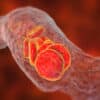Chronic vein issues frequently develop insidiously over time. What may start as minor leg fatigue or small visible veins can escalate into serious vascular problems if not addressed. This underscores the importance of early diagnosis of venous diseases at a vein clinic, which is essential for safeguarding long-term vascular health.
The Importance of Timely Diagnosis for Venous Conditions
Many individuals postpone seeking treatment for spider veins or sensations of leg heaviness, believing these signs to be purely cosmetic or temporary. In truth, they can be early warnings of chronic venous insufficiency or even worsening varicose vein disease. Early diagnosis allows for more effective, less invasive, and more affordable interventions.
At a vein clinic, medical professionals utilize diagnostic methods such as duplex ultrasound to evaluate venous reflux, valve performance, and blood flow. These evaluations lead to tailored treatment strategies before complications arise—such as skin alterations, swelling, or ulcers.
Staving Off Progression with Early Medical Insight
As vein conditions progress, reversing symptoms can become increasingly challenging. Swelling, changes in skin color, and leg pain frequently characterize advanced venous disorders. By detecting vascular issues at an early stage, patients can often avert these consequences entirely. The aim is not only treatment but also effective long-term management and prevention.
Prompt diagnosis also enables proactive changes in lifestyle, such as compression therapy or weight management, which can help slow disease progression. Patients gain valuable insight into their risk factors and the particular ailments affecting their veins—knowledge that can be acquired only through a dedicated consultation at a vein clinic.
Enhancing Treatment Outcomes with Early Intervention
Contemporary minimally invasive therapies—like radiofrequency ablation, sclerotherapy, or laser treatment—tend to yield the best results when venous disease is identified in its initial stages. The recovery timeframe is shorter, and long-lasting results are more reliable when intervention occurs before veins undergo significant dilation or damage.
By tackling venous insufficiency early, patients may decrease the need for multiple treatment sessions, minimize recurrence risks, and enhance cosmetic results. This is particularly vital for individuals with physically demanding occupations or a family history of vascular issues.
Patient Education and Planning for Long-Term Health
Early visits to a vein clinic provide patients with expert knowledge on symptom management, preventing deterioration, and identifying when intervention is necessary. Vascular specialists offer clear advice regarding the usage of compression garments, daily activity, leg elevation, and the impact of family history on venous health.
Proactive diagnosis also establishes a medical record that can be tracked over time. Even if immediate treatment is not needed, having a baseline understanding of vein function enables your healthcare provider to monitor future changes accurately and respond effectively.
For further details regarding diagnostic and preventive care for vascular conditions, please visit vein clinic.




























